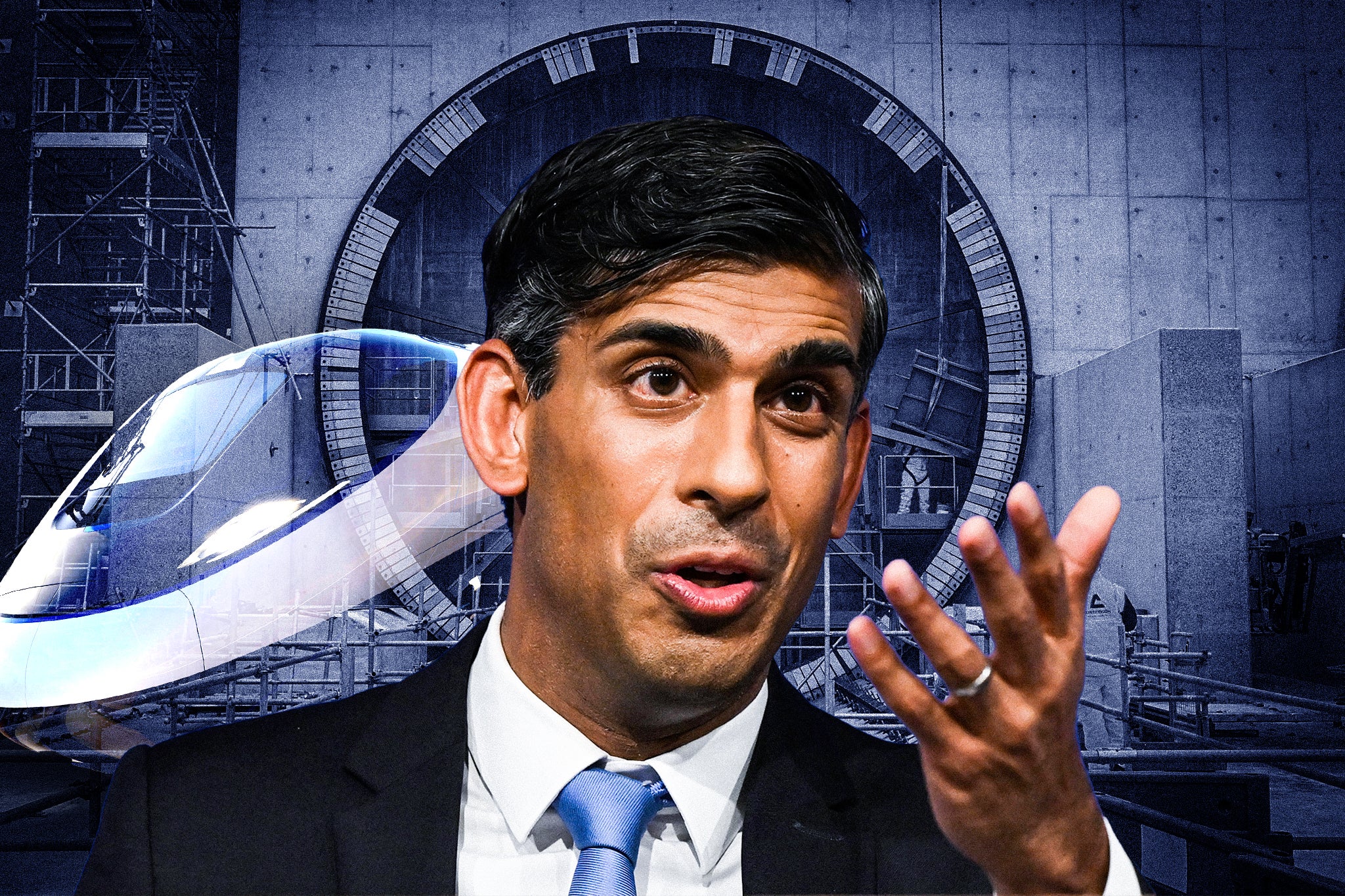If HS2 is scrapped, spare a thought for the victims no one talks about
Nowhere in the HS2 fallout is there much sympathy for the contractors caught up in this mess, writes Chris Blackhurst. Scrapping the project may mean they never trust the UK government again


Rishi Sunak has an election to fight, he wants to be seen to be bold and decisive. He’s anxious to come across as behaving carefully with the nation’s money.
He’s told repeatedly the cost of HS2 is climbing, well north of £100bn, with years still to go and before the heavy building work in creating the fast link north of Birmingham really begins.
It was an idea proposed by Labour under Gordon Brown, launched by the coalition government and championed by Boris Johnson. Johnson loved his “grand projects”, usually without any thought as to the difficulty entailed and the likely final bill.
Sunak, anxious to appear his own person and to put distance between himself and his predecessors, is seemingly contemplating reaching for the off switch.
Spare a thought – and this won’t be popular but please stick with it – for the contractors caught in the midst of this mess, who must pay the price for what is fundamentally a political decision.
Nowhere in the HS2 fallout is there much sympathy for those charged with constructing the thing, who devoted countless hours to the designing, planning, modelling and scheduling, who hired experts and support staff, created offices, and bought in all manner of technology, and must now face ditching the lot and simply walking away.
“Okay”, I hear you shout, “they get paid, they’re in possession of legally binding contracts which will doubtless provide for cancellation.” That is certainly true, but there is more to their involvement, and hasty non-involvement, than that. We, the public, have little idea what is required behind the scenes in preparing the ground for major infrastructure projects.
Another recent green light, red light, was Heathrow. The airport was all set for expansion, a new third runway and extra terminal building were on the cards. Then, it was off. Immediately, hundreds of consultants, planners and civil engineers, were sent packing; floors in office buildings were instantly emptied.
It’s never their fault but that does not lessen the blow. One minute, they’re looking forward to a long period of employment, the next they’re out. One moment, too, they were believing wholeheartedly in the project; they could see the positive difference it would make, they were proud to be associated with it, they were among its keenest advocates. Others, though, had another agenda.
Weirdly, in the case of HS2, this latter group were from the same body that ultimately was responsible for the hiring of the contractors and workers in the first place. It was once so enthusiastic, made them feel it was a dead certainty, that nothing would scupper their ambition. Frequently, to ram home the message, these governmental masters would turn up and don hard hats and high-vis jackets for the benefit of the cameras while they set out their transformative vision.
Government schemes are rarely abandoned; it’s not like having a private sector contractor who may go bust or run out of cash – working on a public contract normally brings with it a guarantee of completion and full payment. Put like this is it any wonder that Britain’s biggest contractors, the firms capable of tackling something as enormous as HS2, even when it is broken down into phases, are fed up?
It can’t be surprising that Mark Reynolds, chief executive of Mace Group, a main contractor on HS2, says that in future his company will be cautious about taking on large-scale government projects. He describes working in the UK as “challenging”, which must be a polite euphemism for “impossible”.
The idea, too, that Reynolds had an inside track, given Mace’s position, can be dispelled. He learned about the possible scrapping of HS2’s Birmingham to Manchester link “like everyone else, about two and half weeks ago” in news reports.
He’s been here before, even in relation to HS2. Mace is one of those refurbishing Euston station, to make it fit for HS2. In March, the Transport Secretary, Mark Harper, announced that upgrading Euston was being paused for two years as the likely costs had almost doubled to £4.8bn.
Right up until the slowing, Sunak and his colleagues were telling anyone who would listen that Euston was going ahead. Then, from nowhere came the postponement.
“We had to demobilise over 1,200 people, designers, supply chain contractors on site,” says Reynolds.
The politicians are at fault, not Reynolds and his fellow builders. It’s ministers’ dilatoriness, the constant changes to the route, and the never-ending uncertainty, that are to blame.
The contractors have done nothing wrong. They are not responsible for politicians not being able to make up their minds. Every delay merely racks up the costs.
In the years ahead, Reynolds and his ilk could be forgiven for deciding that having their names attached to ventures dependent on the whims of the political class really is not worth it.
The government should not be shocked to find the next occasion they wheel out what they hail as a landmark development, there are not so many takers.
Sunak’s political expediency is being made at the expense of trust; where Britain’s construction industry is concerned, there is much rebuilding to be done.






Join our commenting forum
Join thought-provoking conversations, follow other Independent readers and see their replies
Comments